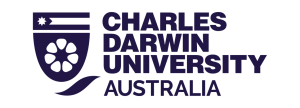Preamble
The Commonwealth of Australia is home to several thousand citizens of African origin. Since 2011 waves of immigrants, especially from conflict zones in a range of African nations, have contributed to Australian intake of settlers from African countries. Figures from the 2016 census affirmed that Australia is home to people of over 100 ethnic and cultural groups, including the African community. This diverse group from African community, consist of people from the West, East, Central, North and South Africa (MYANT, 2012). Common denominators among these communities are the communal spirit—a sense of belonging and brotherliness—and a respect for education. Despite this, the African communities in the Commonwealth of Australia are seriously concerned about the aspirations for higher education among the African youths (MYANT, 2012; Abu-Duhou, 2006; Farfor, Andrew & Finlay, 2003). The majority of African settlers in the states and territories were originally from South Sudan (derived from ABS, 2016 using ABS TableBuilder), implying that they have entered Australia as humanitarian migrants.
The Colloquium: Why the Need?
The literature frequently typifies disadvantaged individuals as low SES, living in drug and crime-ridden areas where houses are poorly kept and families are dysfunctional (Cassity, 2007; Oliver, Haig & Grote, 2009, Tierney, 2014). More importantly is the narrative of the ‘Africa Gang’ in Melbourne, Victoria. Further evidence of this narrative is that children and young people from the African community “have lower rates of Year 12 completion” (Lim, Gemici, & Karmel, 2013, p. 8) and are persistently “underrepresented in higher education” (Robson, 2008, p. 3). This colloquium arises from growing concerns on the part of government, policy makers, and media reports on African gangs. Concerns from the community are reflected in reports to government (Bradley, Noonan, Nugent & Scales, 2008; Universities Australia, 2008) and, as a consequence, efforts to improve the educational outcome of these students represent “one of the enduring goals of Australian social policy” (Lim et al., 2013, p. 8).
This colloquium is significant in two respects. First, equity for disadvantages humanitarian migrants is the subject of much research over a number of years. Despite this, a preliminary scan of the literature has been unable to find a meta-analysis of the findings of studies, particularly over the last five years. Nor is there any consensus on how best the challenge of raising aspiration can be met. Tierney and Jun (2001), for example outline three common but ineffective school-based models for preparing disadvantaged youths for college. Somerville, Gray et al (2013) devised a collaborative school-university program for the same purpose.
The second significant aspect is that this colloquium will bring African scholars in diaspora, including Australia to come together to develop the blueprint/ policy framework for education and health that can promote cultural values, resilience, educational aspirations and diversity awareness within African migrant communities in the whole of Australia and abroad. Following this new agenda, result in research partnerships at the local level with the Melaleuca Refugee Centre and the Pullias Center for Higher Education, University of Southern California.
We wish to extend an invitation to you to contribute a paper to a colloquium titled: Understanding Aspirations: Listening to African-Australian Education and Health Narratives. This colloquium, to be hosted by Charles Darwin University in October 2019, is a multi-disciplinary platform for intellectual engagement in a broad spectrum of policy issues about Africa in different research areas such as:

